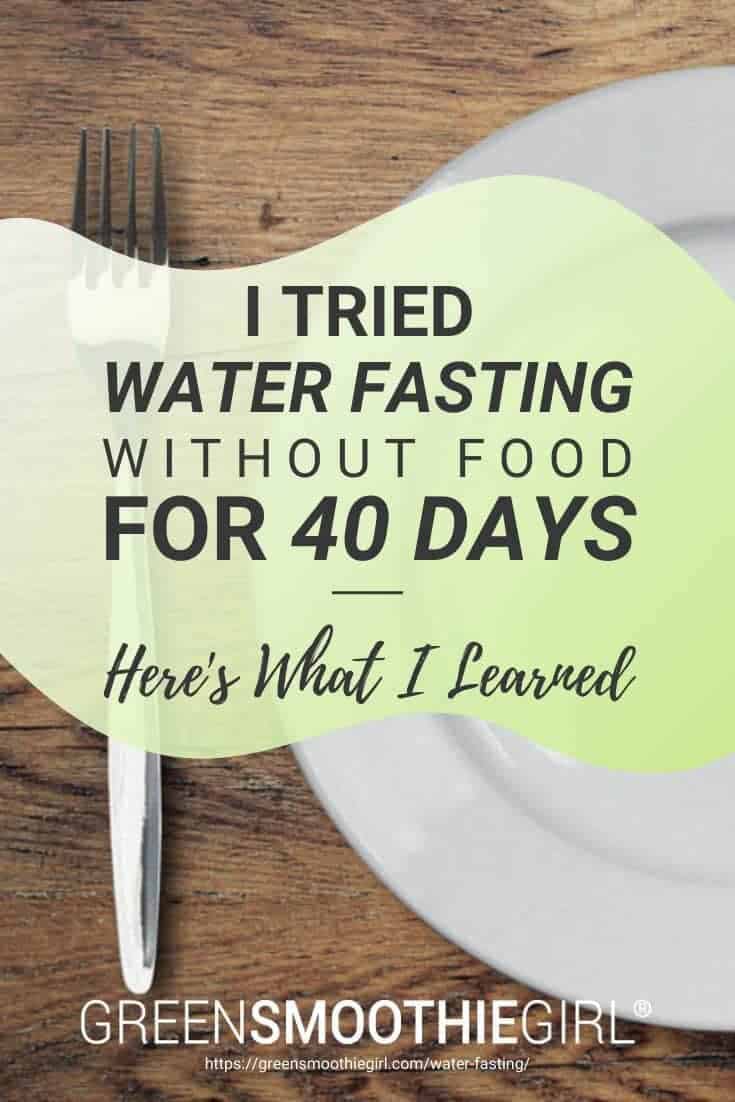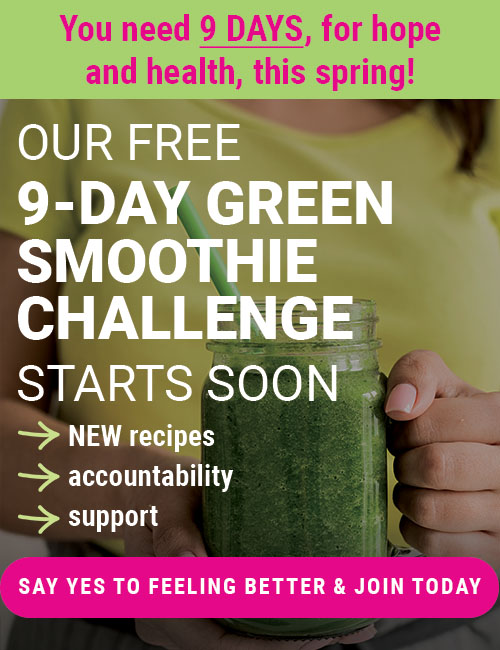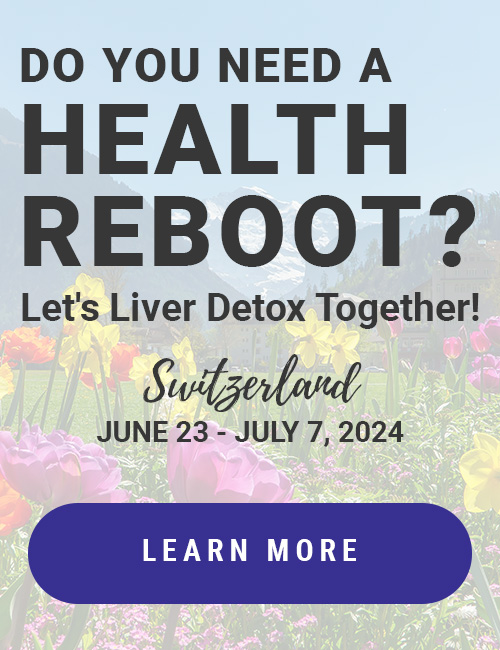I Tried Water Fasting Without Food for 40 Days | Here’s What I Learned
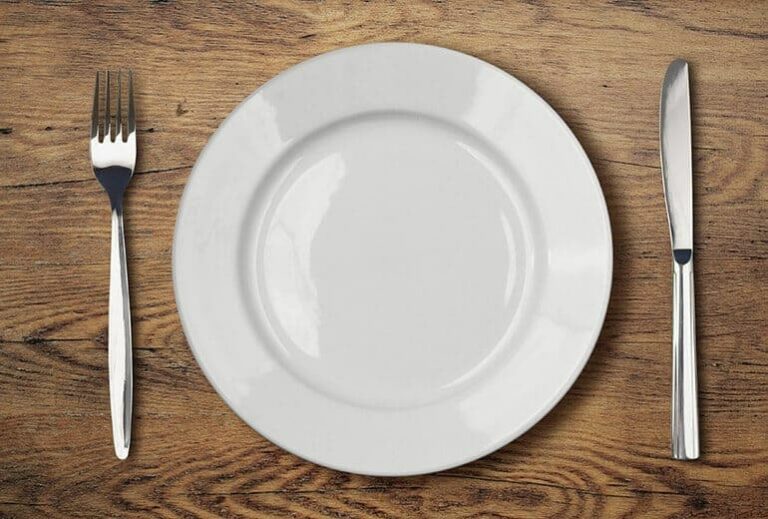
I’m completely fascinated by the process and benefits of fasting without food. I’m talking about "eating absolutely nothing for a long period of time." (With water, it's called “water fasting,” or without water, it's called “dry fasting.”) And, I’ve always felt that when Christians, Muslims, and Jews quit fasting routinely, we lost something important. After all, some sects in those religious traditions used to fast at length, even for weeks at a time.
In this article:
- Fasting-Mimicking Detox
- Why I Didn’t Do My Water Fasting at Home
- What It’s Like to Fast at Siddhayatan
- Should You Try Water Fasting?
- What Are the Side Effects of Fasting Without Food?
- What Does Research Show the Benefits of Fasting Are?
- Is Water Fasting Without Food Good for Weight Loss?
- How Can I Get the Benefits of Fasting Without Actually Fasting?
- Who Shouldn’t Fast?
- What I Learned From Fasting Without Food
Fasting-Mimicking Detox
Now, my research into fasting—including doing it myself 4 times in the past 2 years (for 12 days, 9 days, and 7 days twice, and some shorter fasts in between)—has less to do with spiritual fasting or purification and more to do with the health benefits.
I developed a modified fasting kit this year, as well as what could be described as a fasting-mimicking detox five years ago, which 13,000 people have now done. (By “fasting-mimicking,” I mean you can eat, but food is completely prescribed and scheduled to achieve similar benefits to fasting.)
I don't honestly believe that most people can or will go completely without food for a week or more, like I did.
[Related: Modified Fasting 101: The Ultimate Beginner's Guide]
In fact, I’m not sure they even should. More on that later.
Let’s talk about the crazy, slightly disgusting, and amazing things that happen in the human body when you fast for a long period of time, why I keep doing this, what I get from it, and why you might want to consider a fast of your own, whether with or without food.
Why I Didn’t Do My Water Fasting at Home
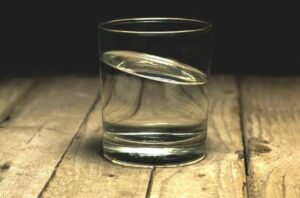
When water is readily available, it is hard for most people to abstain from it.
I have very little self-discipline. I’m not a biohacker, constantly using technology on myself to experiment. I’ve never run a race longer than a 10k and don’t plan to. I don’t have any self-denial fetishes. I don’t just do every hard thing, because it’s a challenge.
Besides being raised Mormon, where we fasted Saturday night to Sunday night one Sunday every month from the age of 8, I have absolutely no reason why fasting for 40 days would be easy for me.
I’m one of those people who, if something hurts, or I’m hungry, everybody around me is gonna know about it.
In fact, I knew I couldn’t successfully water fast at home.
I would start with the best of intentions, I’m sure. I might even last a whole day. But, the fridge would be right there 100 steps away. My car would be in the garage. I live just 10 minutes away from food, really good food.
No, wait, it’s worse than that. There’s a Thai restaurant literally 3 minutes away from my house.
My willpower is nothing when I get ferociously hungry. I’m a vegetarian, and frankly, I’d eat a t-bone cooked rare if I got hungry enough, maybe even a hot dog. (I suffered actual pain writing that.)
Rather than deal with all that temptation, I flew to a spiritual retreat in Texas run by Hindu monks and nuns to fast. It’s called Siddhayatan.
What It’s Like to Water Fast at Siddhayatan
Siddhayatan is in Nowhere, Texas. Truly, it is miles from anything, and you cannot use your Uber or Lyft app from there to sneak out and get food in a moment of weakness.
It’s insanely cheap, maybe the cost of a Motel 6.
It makes sense, considering they’re feeding you nothing, and you might be sharing a bathroom or staying in a room with no drywall, and your only form of light is a naked lightbulb.
I could go to True North in California where they’ll “medically supervise” me, and the lodgings are really nice.
But heck, while I’m facing all my addictions, might as well face my addiction to upper-middle-class luxuries.
I take a sliver of soap and a towel. (That's right, the Hindu ashram does not provide a towel or washcloths.)
I take a $100 Uber from the airport, where you can actually get a ride. You can Uber to the ashram, but not back to the airport.
Later, I’ll have a private car company drive me back, but you can’t just call them when you’re freaking out and wanting food. You can schedule them to pick you up tomorrow.
So, this saves me from my freakouts. I mean, freakouts are by definition short-term.
You see how it’s the perfect place for extended water fasting? Temptation is completely removed.
Also, you can have a meal there if you find you aren’t doing well in fasting without food.
You would have to be in a serious crisis to just drop in for lunch, though. First of all, that would be embarrassing.
You’re supposed to give them a heads up because this is the most frugal place you’ve ever been.
The monks and nuns (dressed all in white) make a homemade vegetarian Hindu meal three meals a day, but they make just enough for the exact number of people they have there doing the yoga, meditation, silent, and spiritual retreats.
(You, the water faster? No soup for you. They didn’t plan on you crashing the meal.)
So, besides being embarrassing to fail to ask well in advance if you can eat a meal with everybody else, you might actually be causing everyone they did plan for to not get enough to eat if you just crashed a meal.
I know, it’s really Dickensian.
So, my point is, your food cravings are not easily indulged at this place. And for me, that’s half the battle.
There is the actual hunger and physical weakness itself to contend with—sometimes even symptoms from long-term fasting without food (I’ll get to that)—but the constant temptations you’d have at home are removed.
I know a guy at home who recently fasted for 23 days. He went out to lunch and coffee with people the whole time and just abstained.
I guess some people are motivated or more self-disciplined than I am.
I almost lost my mind watching Netflix on my laptop during my final fast at the Ashram.
(Do you know how much food they show, on most movies and TV shows? No, you don’t. You notice this kind of thing only when you’re fasting.)
So, some people might have an iron will and be able to fast at home, but I am not one of them.
The total isolation at Siddhayatan is hard (I like being around people!), but it’s also helpful.
Should You Try Water Fasting?
Water fasting can be dangerous under the wrong circumstances and should only be done under supervision.
Now, if you’re thinking about this for yourself, there are a few caveats.
One, there is no medical supervision here. No nurses or doctors. They have people fasting here all the time, without serious incident, but people have actually died from prolonged fasting before, or so I’ve heard.
I mean, the odds of you dying from fasting are probably about as high as you dying from taking most over-the-counter medications or driving in a car.
That is pretty low.
But, when I interviewed Valter Longo, Ph.D., a fasting and longevity expert and author of The Longevity Diet, he did cite two deaths he knows of from people fasting for a length of time, one of them with diabetes and one with multiple sclerosis.
While Longo recites the many incredible health benefits of fasting, including rebuilding myelin sheath and regenerating insulin-producing capacity of the pancreas—long-term benefits, not just short-term, after the fast—I imagine he doesn’t want the liability of people at risk fasting for long periods of time, due to his recommendations.
Frankly, neither do I, in an age of litigiousness.
This seems ridiculous, given that millions of people have fasted, whether accidentally due to lack of food or on purpose, for literal millennia. But, here we are in 2018 where most Americans have never gone a whole day without food, and some tell me they’ve never even skipped a meal. I think we’re more in need of fasting than any culture in the history of mankind.
So, here’s my onerous disclaimer: if you undergo a water-only fast or dry fast longer than a day, don’t say that I told you to do it. Please do it under the supervision of a trusted functional medicine practitioner. For more information about supervised fasting, listen to my podcast interview with Dr. Alan Goldhamer of True North clinic.
This blog post is about my experience, is not medical advice, and does not substitute for competent medical care.
What Are the Side Effects of Water Fasting Without Food?
Hunger and Energy Fluctuations

When fasting for long periods of time, it is normal to not have very much energy.
It goes without saying that you’re really insanely hungry the first few days. Then, your body and mind settle in.
Some people describe having lots of energy. Most don’t! Generally, the longer you fast, the more your cravings for food subside, but so does your energy.
Your spirit will stay higher if you’re “doing the mental work” of challenging yourself with the task of confronting your addictions, congratulating yourself on your progress each day (or hour), reminding yourself of the health benefits, and staying positive.
If you’re smart, you don’t take a laptop with a huge writing project and deadline, like I do. (A single mom’s gotta work!)
If you can afford the time off from life, you can just lie in bed and take short walks now and then, but not do much of anything unless you feel like it.
That said, you know yourself, and some of us do better when we’re as productive as energy allows.
I think fasting without food would actually be harder for me if I were like everyone else at the Siddhayatan retreat and didn’t work at all.
On about day 4, I start to have periods of not feeling hunger. One of the nuns told me that this is my body and mind “accepting” the fast.
Autophagy: Muscle, Tissue, Organ, and Fat Cleanup
But, I also, in each of my last 3 fasts, start to have lower back pain on day 4. Since I never experience this at home, I researched it, and I believe it is—don’t be scared now because this is going to sound scary—my kidneys backlogged with broken-down muscle tissue, possibly compounded by over-drinking water (which is easy to do when that’s all you can have).
Yeah, your muscle breaks down a little bit. This may sound like a bad thing (and of course, you should never ignore what pain may be telling you).
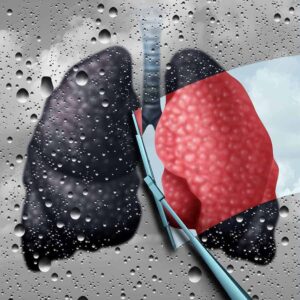
Fasting is a great way to cleanse your body of all the harmful things that are introduced when eating everyday food.
But, if you’re a weightlifter and your trainer has you believing that all your nutrition habits should be geared to just one thing—preserving and building muscle mass—let me share a revolutionary concept. Well, two of them.
- Every time you lift weights, you’re tearing down muscle fiber. And, as it builds, that’s how your muscles grow.
- Your muscle needs cleanup, just like your organs, joints, and every cell! If a tiny amount of your muscle breaks down, it was the body tearing out the parts that needed rebuilding anyway.
Don’t overattach, as the Hindu monks would tell you.
This incredibly important process, called autophagy, is one of the most important reasons to fast, whether it is modified fasting, or water fasting. Remember, the fasting process doesn’t want to break down a healthy muscle. It’s strong, and it is serving you well.
As you deprive your body of food, it’s nasties like bacteria, cancer, and yeast that are gobbled up like crazy, and belly fat!
When the body is in a fasting state rather than a fed state, the immune system hunts down mutated cells, and breaks them down. The white blood cells and killer T cells, for instance, are highly energized when you're deprived of food, and they become very active.
This discovery is considered so important, that it won the Nobel Prize for researcher Dr. Yoshinori Ohsumi in 2016.
Fasting Is Different For Everyone
My friend Katie Wells, who has one of the most popular wellness blogs online, The Wellness Mama, recently water fasted for 2 weeks and found that after the first three days of weakness and hunger, she was insanely productive.
She cooked for her family of six children and just went abstaining from food.
As I mentioned before, if I was at home cooking for my own children, I lack confidence that I wouldn’t cave and throw in the towel after a day or two, promising myself, “I’ll start again tomorrow.”
Total isolation and removal from food temptation, like I get at the Texas ashram, is very beneficial to me (also a little lonely).
Fasting without food gets you “up close and personal” with all your addictions. You know how you need a coffee to wake you up? (Or, in my case, you like it as a pick-me-up while you’re working in the afternoon.)
Well, you can’t have one. You can’t have a glass of wine (or three) on Saturday night, you can’t snack, and you can’t even have a cup of tea.

There are a lot of factors to consider when choosing if long term fasting is for you or not.
This becomes an interesting deep dive into your soul, where you learn how addicted to stimulation, in general, you are.
What will you do with that knowledge? I think even the awareness is helpful towards managing addictions and moving through them to a healthier place.
I think that if you can soldier on and do your work and tend to your family, the time will pass more quickly than if you do what I do: sit around in bed, mostly, working on your laptop and watching movies. (PS: try not to watch movies about food.)
When I was hitting a wall in my most recent 7-day fast, on day 3, the nuns told me about some of their other water fasters.
The longest? An older man fasted for 40 days without food. Pretty Biblical, right? They said he would pretty much lay in bed the whole time and was very, very weak.
But, the woman who stayed in my room before me had come for a 30-day fast, brought her dog, and planned to confront her emotional eating problem.
She ended up extending two more days. (Wow.)
Another woman came for three weeks and walked 10 miles a day.
Like I said, fasting is different for everyone. In fact, while each of my long fasts has had similarities, my process, struggles, and epiphanies are different each time, too.
What Does Research Show the Benefits of Water Fasting Are?

There are a host of health benefits that result from giving your body and your digestive system a break.
Anti-Cancer Benefits
I was first handed a bibliography of books on fasting by Thomas Lodi, M.D., when I was on a worldwide research tour of 19 clinics, studying non-toxic cancer treatment.
Lodi feels that fasting for 30 days is the best thing a cancer patient can do.
Some disagree. In fact, Valter Longo, Ph.D., who specializes in fasting and in oncology in his research, feels that fasting while doing chemo is highly effective, protective of healthy cells, but he says that in both animals and human studies, he’s never seen fasting alone turn cancer around.
I think it’s clear that when a patient is in Stage IV and cachexia has set in, where the body is metabolizing muscle to feed cancer and stay alive, fasting may be a very poor idea.
But, Dr. Lodi maintains that the evidence shows it to be a powerful cancer preventative and treatment adjuvant.
With quite a bit of cancer in my family, my primary reason to fast periodically is cancer prevention.
Anti-Diabetes Benefits
One study shows fasting to be regenerative for insulin production, as the pancreas repairs itself during a period with no food. The results weren’t short term; months later, they remained.
This is especially true when the person fasting begins “refeeding” on a plant-based diet. (Longo says the evidence is clear that a plant-based diet, with small amounts of wild-caught fish, is best for longevity.)
Several studies in Longo’s book cite turning around Type II diabetes, though Longo feels that a “fasting-mimicking diet” (a type of modified fasting) is preferable and less risky. Those taking insulin should not go without food for a long period of time.
Our 26-day detox qualifies as “fasting-mimicking.” You’re eating three meals a day, but all the food is easy to prepare, high in fiber and micronutrients, and the detoxer is eating no processed food, no animal products, and no highly allergenic foods.
There are periods of significant calorie suppression, which Longo’s research shows to be powerful in increasing stem cells, increasing human growth hormone and disease reversal.
Having guided 13,000 people through our detox program in the past 5 years, I agree with Dr. Longo that many people are simply too toxic to do a full-blown fast with no food at all.
(Some feel great the whole 26 days, but others struggle, even with eating three times a day on the detox, as they come off their caffeine, alcohol, sugar, salt, and other addictions.)
However, with rare exceptions, anyone can do our Flash Fast 3-day modified fast, our 26-day detox protocol, Longo’s “fasting-mimicking diet,” or “FMD” five-day monthly protocol.
Autophagy Benefits: Cleaning Out for Better Rebuilding
At the water fasting retreat I did in 2016, I met a man named Eric.
His reason to fast was that a practitioner told him to do it for 20 days, to burn out a severe candida overgrowth.
Eric had been a heroin addict for many years, and he’d been hospitalized for the effects of his drug use, where he contracted MRSA that required a month of antibiotics. And, as you likely know, antibiotics usually lead to gut issues.
His were extreme. Absolutely anything he ate bloated his otherwise flat stomach to looking like he was 8 months pregnant. He was miserably sick, and desperate.
He was desperate enough to stop eating for 3 weeks.
However, contrary to Eric’s belief when he arrived at the retreat, the primary benefit of fasting isn’t ketosis, although you are definitely in ketosis after a day or two.
Eric was after “ketosis,” where the body burns ketone bodies in the brain for fuel, which is all the rage currently with practitioners.
(I predict the obsession with ketosis, which is actually the body in crisis, will eventually go the way of the dodo.)
I explained autophagy to Eric, which is far more interesting to me.
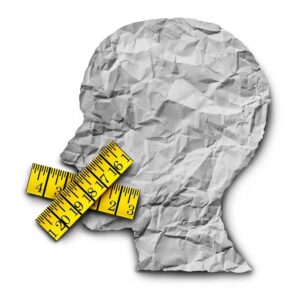
Fasting forces your body to get its energy from sources outside of food.
It is literally defined as “self-eating," because when the body has no other fuel, it feeds its cells and does cleanup work by metabolizing cancerous growths and breaking down yeasts, mold, fungi, viral, bacterial, and many other aberrant cells and growths.
Longo’s research culling epidemiological studies, as well as centenarian studies and his own research with various populations, points to not just the “self-eating” phenomenon of autophagy burning out aberrant cells first (not muscle mass, my friends, not unless that muscle needed replacing), but also the efficacy and power of the rebuilding process, which happens after the fast.
Amazingly, 3 weeks of water fasting rectified Eric’s desperate situation, and a few months after finishing his fast, he texted me that he was still feeling great.
Neurological Benefits of Water Fasting and Fasting
Not only does fasting help our bodies; it also benefits our brains. New studies show that fasting may actually ward off neurodegenerative diseases like Alzheimer’s and Parkinson’s and even improve our memory and mood.
Dr. Longo cites a study showing that fasting contributes to stripping down and rebuilding the myelin sheath, an exciting possibility for multiple sclerosis patients.
Other studies reveal a correlation between fasting and improved neural connections in the hippocampus (the part of our brain that plays a critical role in memory). It has also been shown to reduce the number of amyloid plaques, the proteins associated with Alzheimer’s.
Fasting has also been shown to increase the brain-derived neurotrophic factor (BDNF) that contributes to the growth and maintenance of the brain’s nerve cells and has an anti-depression effect.
Mark Mattson, a professor of neuroscience at the Johns Hopkins School of Medicine, explained in Johns Hopkins Health Review how fasting produces changes in the brain.
When you eat, glucose (or sugar) is stored in your liver as glycogen. Once the glycogen is used up, in about 11 hours, your body starts burning fats that are converted to ketone bodies.
It is these acidic chemicals that actually produce positive changes in the structure of synapses, or the gap that transmits information from one nerve cell to another. These cells have been shown to transmit signals to and from the brain at speeds of 200 mph.
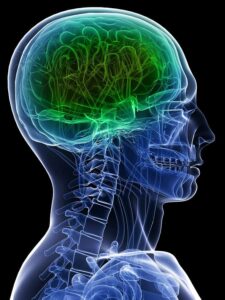
Fasting can improve your neurological function and connection.
When we constantly eat, our bodies don’t have a chance to produce these ketones. It’s interesting to note that exercise has similar positive effects on the brain.
Immune System Regeneration Benefits
The results of yet another study conducted by Professor Longo and his colleagues at USC surprised even them, deeming the unexpected outcome “remarkable.” The research consisted of asking a group of people to fast for two to four days on a regular basis for a period of six months.
What surprised the researchers was this: fasting caused the immune system to regenerate. They believe that the body, put into a state of low reserves, does what it can to save energy.
The result is that a lot of damaged immune cells, along with glucose, fat, and ketones, are broken down. The depletion of these immune (white blood) cells results in stem cell-based regeneration of new immune cells.
Another one of their findings was a noticeable decrease in the production of the enzyme PKA, a hormone that has been associated with an increased risk of cancer.
The reduction in PKA allows the stem cells to switch into regeneration mode, ultimately rebuilding your entire immune system.
It's pretty incredible.
Anti-Aging Benefits
Researchers from the Department of Medicine at the University of Virginia found that fasting for just two days produced a 5-fold increase in human growth hormone (HGH).
This hormone that diminishes as we age is associated with muscle and bone growth as well as sugar and fat metabolism. It has also been shown to significantly reduce the symptoms of congestive heart failure.
In addition, clinical findings showed a decrease in cholesterol and triglycerides as well as inflammation which, as we know, is associated with a number of chronic diseases such as arthritis, Alzheimer’s, cardiovascular disease, and high blood pressure.
Asthma Benefits

Fasting can improve the symptoms associated with asthma.
In another study conducted by Mark Mattson’s team, participants with moderate asthma cut their caloric intake down to about 1/5th or 20 percent of their normal consumption every other day for eight weeks (this would be an example of a “time-restricted diet”).
The result? The symptoms associated with their asthma “improved significantly.”
Is Water Fasting Without Food Good for Weight Loss?
Fasting is great for weight loss, but that’s not a great primary reason to fast. I’ll explain.
First of all, there are much, much easier ways to lose weight. Faster isn’t always better.
[Related: Will A Fasting Diet Give You The Results You Want?]
Second, you will gain back some or most of the weight you lost, and that’s a good thing.
You have to understand that fasting is a two-part process.
There’s the first period where you aren’t eating. As discussed before, your body is breaking down old cell parts, tissues, and fat stores, and healthy cells are consuming dead cells for fuel and so that they don’t swamp the filtering organs like the kidneys.
But there’s also the “refeeding” process. That’s where you give the body very healthy fuel, after your fast, to rebuild the broken-down tissues.
Because “you are what you eat,” then you want to eat lots of the cleanest foods possible, that is, nutrient-dense, organic plant foods, including greens, vegetables, nuts and seeds, fruits, and legumes. And, if you eat animal products, eat very clean ones, and sparingly.
So, one of the first parts of the body to break down is fat stores, especially belly fat, according to research literature cited by Longo, and reviews of the Flash Fast by our customers. But, as you may know, fat cells don’t disappear.
They only shrink. So, if you go back to your old ways of eating, you can fairly easily rebuild those belly fat deposits.
You’ll have to end your fast with a commitment to eating mostly plant-based whole foods if you want the belly fat not to return.
Some people respond to the idea of fasting with this: “That’s a terrible idea because you’ll lose muscle mass!”
This seems to be a vestige of the protein-obsessed fitness industry, who thinks that (a) anything that builds muscle mass is good (not true!) and (b) anything that decreases muscle mass even to the smallest degree is bad (also not true!).
Remember, any muscle tissue that your body breaks down in the fasting process (a) needed to be broken down and metabolized anyway, which is hard on the kidneys but great for your stripped-down and rebuilt lean muscle, and (b) will be the first to be rebuilt, along with healthy organ tissue, like pancreas, kidney, or liver.
If you fast and you’re interested in weight loss, I recommend against weighing yourself before and after.
You’re going to lose how much you lose, and in the “refeeding” process, you will gain some of the weight back. (You need to.)
Just trust the process, don’t make weight loss the primary goal, and focus on the health benefits.
How Can I Get the Benefits of Fasting Without Actually Fasting?
Like Dr. Longo, I wouldn’t tell any first-time faster, someone who has never done a committed detoxification protocol or a long-term (4+ days) fast, to dive into this experience without dipping a toe in the water first. Here are some ways to do that:
1. Longo’s Own 5-Days-a-Month “Fasting-Mimicking Diet” Is a Place to Start
That’s one idea, and you can read about it in his book The Longevity Diet. (In his program, you’re eating plant-based meals, of about 800 calories a day.)
2. 3-Day Modified Fast
This new program is based on the latest research in modified fasting, and acknowledges that many people have a hard time restricting calories for more than 3 days. In the Flash Fast, all your food for 3 days is provided (and you can add unlimited greens, plus 150 more calories of fruits and veggies), and you'll get support in a private Facebook group with trained health coaches.
3. 26-Day Detox Protocol
A third option for a hard reboot of the body’s digestive system and a lot of breakdown of old material and eliminations of chemicals in organs and fat deposits, is our 26-day process. It is not a calorie-restricted plan--you eat lots of delicious foods, every day, and it's highly effective, based on the research and practice of the “greats” in the field of human detoxification.
These include Dr. Max Gerson, Dr. Bernard Jensen, Dr. Ann Wigmore, and Dr. Richard Anderson, among others, who have influenced my own 20-year dive into how the body purifies itself, and now to nurture it, in that process.
4. You Could Skip Lunch or Dinner Each Day For An Extended Period of Time
Eat only two meals and an approximately 100-calorie snack (like an apple or a small green smoothie).
This is my suggestion: significant evidence shows breakfast to be very important, especially as brain fuel if you work for a living or go to school. Children critically need breakfast, as this study and others show. So, skip lunch or dinner rather than breakfast.
5. You Could Do Alternate-Day Fasting
You fast one day a week, or every other day, to slow the process and shorten the refeeding cycle.
6. Dr. Bryan Walsh is An N.D. Detoxification Practitioner and Feels That No One Should Undergo a Fast Without a Sauna
I agree with him. There is such a flood of chemicals and metabolic waste coming through; a daily sauna session would be more than helpful.
The ashram has not invested in one. (I’ve offered to help.) Virtually all other disease treatment centers I’ve visited worldwide offer infrared sauna sessions.
Having one at home is potentially one of the most useful things you can invest in for your health. Make sure it’s a low-EMF sauna using untreated cedar wood.
Fasting, or even a fasting-mimicking diet, will be massively assisted by daily sauna sessions.
7. Coffee Enema
I think a coffee enema would be very helpful as a daily practice throughout a fast. (Not allowed at the ashram either. They don’t want any potential messes in the residential rooms.)
The caffeine in the organic coffee is instantly taken up by the hemorrhoidal vein to the liver, which not only produces a lot of glutathione (the master antioxidant) but also dilates the liver bile ducts, to release a lot of toxicity into the lower colon.
This allows it to release immediately, rather than recirculate over and over through the blood.
Our detoxers who do this optional but encouraged practice report quick and highly reliable relief from headaches, constipation, and many other symptoms of detoxing (called Herxheimer reactions).
This practice was pioneered by Max Gerson, MD, about 100 years ago, and I personally have used it with astonishing results in my own detoxification experiments and working with 13,000 detoxers, over two decades.
Dozens of holistic clinics around the world employ it, as well, especially for cancer patients to help eliminate tumors breaking down. (For example, this Swiss clinic of biological medicine I take my readers to each summer for a liver detox.)
Who Shouldn’t Fast?
- People with renal (kidney) damage (I aborted my last fast 2 days earlier than planned when kidney pain cropped up. However, I’d had annual testing the month before and knew my kidneys to be in perfect shape.)
- Pregnant and nursing mothers
- Children (In fact, children shouldn’t do severely “time-restricted eating” or “intermittent fasting” that involves skipping breakfast, either.)
- People with significant diagnoses
- People with diabetes

If you are significantly ill, fasting might not be for you.
(If it were me, as noted earlier, I’d start with one of the options in How Can I Get the Benefits of Fasting, Without Actually Fasting before jumping right into a long water fast.)
Obese people are most likely to fast, and I’ve read of some fasting for 8 weeks or more. Obesity itself presents an enormous risk of death, and so do possibly even more extreme solutions like gastric bypass.
Those with extreme fat stores are also storing more toxins, as fat attracts chemical toxicity. So, likely, all the risks of long-term fasting are much higher for obese people. They should be under very close medical supervision. Because while it may be tempting to think “go big or go home” with the long water fast, the risk of cardiac arrhythmia and renal damage or hyperacidity is also higher.
What I Learned From Fasting Without Food
As I strip down broken parts and bits of organs, fat stores, and muscles and tissues, a similar process occurs in me, emotionally and mentally.
I break down, a bit, and rebuild.
And, this is why the spiritual seekers and mystics fast for even longer periods of time than I do: to allow spirit triumph over the body, for a time, and to bring the mortal body low, to humble it, so that only the spirit is strong.
For many, fasting is a way to humble oneself to be more capable of giving thanks and worshiping divinity.
For me, too, it’s my shield against living in a world where I have to breathe cadmium and arsenic in the air, occasionally, despite my significant efforts, eat genetically modified foods and refined foods with carcinogenic chemicals added, and drink water with plastics or antibiotics or fluoride in it.
In my weakness, I also learn how strong I am. I discover that I can do hard things and that I can mentally overcome the weakness of the flesh.
Amazingly, while my most recent 7-day fast was the hardest, I think it was also the most emotionally cathartic.
I learned how my brain, deprived of fuel, affected the way I view others. I decided to observe it rather than judge it.
Basically, I was mad at everyone and everything, for two days, as energies and matter moved through me—another reason I’m glad I was at an ashram far from home.
This PubMed article explains why adrenaline is increased in many who fast for several days. (This also explains why I had a resting heart rate of 78 when my normal is 55, and in the last few days of my fast, I felt my heart pounding in my chest.)
I was working on my laptop, and occasionally phone, and I found that things I would normally take in stride provoked a surprising amount of irritability and flashes of anger. It lasted two days, and then I woke up, peaceful, the last morning.
My awareness was heightened. I thought a lot about my weaknesses and addictions, and I stared at them without shaming myself. I was just observing.
I realized—without even tea, or chewing gum, to entertain my mouth and my senses—how many times, during any day, I do something to increase or decrease my energy, my anxiety, or my ability to rest.
It’s not like I’m taking depression meds, sleeping pills, or painkillers or street drugs.
But, I do drink coffee to power through an intense afternoon of work, and I do drink wine to lubricate a stressful social engagement with strangers.
I do jumping jacks next to my desk to manipulate my energy, and I play sports every morning not just because you’re supposed to break a sweat for your health, but also for the adrenaline rush and endorphins I draft on, all day.
It is an interesting and useful exercise to fast for a week or two, where all these tactics are off the table. And, I have nothing to rely on except my mind.
And, I find that my mind is strong enough to conquer difficulties. This is good to know, because if we know one thing about life, it’s that we will face serious challenges in the future.
The main thing I accomplish, then, when I fast, is strengthening my body and mind.
Next: I made two Facebook Live videos during my most recent water fast, answering viewer questions and giving more detail. Watch them here:
Read Next: Modified Fasting 101: The Ultimate Beginner's Guide

Disclosure: This post may contain affiliate links that help support the GSG mission without costing you extra. I recommend only companies and products that I use myself.
Sources
- Longo, Valter Ph.D. The Longevity Diet. Avery. 2018
- Wells, Katie. My Experience with Water Fasting & Why I’ll Do It Again. Wellness Mama. 03/2018. https://wellnessmama.com/345549/water-fasting/
- Sugarman, Joe. Are There any Proven Benefits to Fasting? Johns Hopkins Health Review. 2016. http://www.johnshopkinshealthreview.com/issues/spring-summer-2016/articles/are-there-any-proven-benefits-to-fasting
- Wu, Suzanne. Fasting Triggers Stem Cell Regeneration of Damaged, Old Immune System. USC News. 06/2014. https://news.usc.edu/63669/fasting-triggers-stem-cell-regeneration-of-damaged-old-immune-system/
- Hartman, ML. et al. Augmented growth hormone (GH) secretory burst frequency and amplitude mediate enhanced GH secretion during a two-day fast in normal men. The Journal of Clinical Endocrinology and Metabolism. 04/1992. https://www.ncbi.nlm.nih.gov/pubmed/1548337
- Johnson, James B. et al. Alternate Day Calorie Restriction Improves Clinical Findings and Reduces Markers of Oxidative Stress and Inflammation in Overweight Adults with Moderate Asthma. Free Radical Biology and Medicine. 03/2007. https://www.sciencedirect.com/science/article/pii/S089158490600801X?via%3Dihub
- Grantham-McGregor, S. Can the Provision of Breakfast Benefit School Performance? Food and Nutrition Bulletin. 06/2005. https://www.ncbi.nlm.nih.gov/pubmed/16075563
- Zauner, C. Resting energy expenditure in short-term starvation is increased as a result of an increase in serum norepinephrine. The American Journal of Clinical Nutrition. 06/2000. https://www.ncbi.nlm.nih.gov/pubmed/10837292
Posted in: 12 Steps To Whole Food, Detox, Fasting, Holistic Care, Mind/Body Connection




